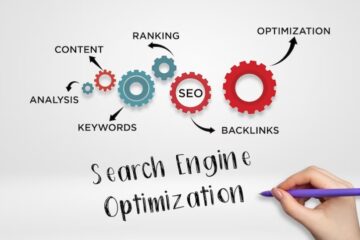Search Engine Optimisation (SEO) is critical in digital marketing because it allows websites to improve their exposure and rankings on search engine results pages (SERPs). Two key aspects of SEO take the front stage: on-page SEO and off-page SEO. These aspects include many techniques and practices aimed at optimizing webpages for optimal search engine performance.
What is On-Page SEO?
On-page SEO refers to optimization approaches and components that are used directly on the pages of a website. It aims on making the website’s content, structure, and HTML source code more relevant, user-friendly, and search engine-friendly. Keyword research and optimization, content generation and optimization, meta tags and descriptions, URL structure, and other criteria are all part of on-page SEO.
What is Off-Page SEO?
Off-Page SEO refers to operations that occur outside of the website in order to boost its visibility and reputation in the online world. It primarily focuses on generating high-quality backlinks, increasing social media interaction, and improving the overall online presence of the website. Link building, social media marketing, online reputation management, and other approaches are examples of off-page SEO techniques.
On-Page vs. Off-Page SEO: What’s the Difference?
- Focus and scope:
On-page SEO focuses on optimizing website features for improved search engine performance. Off-Page SEO refers to operations that take place outside of a website in order to increase its internet presence and reputation.
- Control and implementation:
On-Page SEO provides website owners with direct control over optimization activities, whereas Off-Page SEO is dependent on external factors.
- Impact on search engine rankings:
On-page SEO influences rankings by assisting search engines in understanding the content and relevancy of a website. Off-page SEO has an impact on search engine rankings through backlinks and social signals that reflect legitimacy and popularity.
- Long-term benefits and sustainability:
On-page SEO activities have a greater long-term and sustained impact. Off-Page SEO necessitates continuing efforts to maintain and grow a website’s internet visibility and authority.
On-Page and Off-Page SEO Best Practises
Best On-Page SEO Practises:
- Thorough keyword research and strategic keyword use
- Creating high-quality, valuable, and entertaining material
- Website structure and navigation have been improved.
- Mobile optimization and fast loading speed
- Meta tags that are descriptive and optimized
Best Off-Page SEO Practises:
- Obtaining high-quality backlinks from reputable websites
- Social media profile optimization for businesses
- Contributing useful material to authoritative websites and guest blogging
- Participation in online communities and forums is encouraged.
- Strategic alliances and collaborations with influential people and important websites
Conclusion: Maintaining a Balance Between On-Page and Off-Page Strategies
To achieve maximum SEO success, a balanced approach that encompasses both On-Page and Off-Page methods is required. You may increase your search engine rankings, create organic traffic, and achieve long-term success in your digital marketing efforts by applying best practices in both areas.




